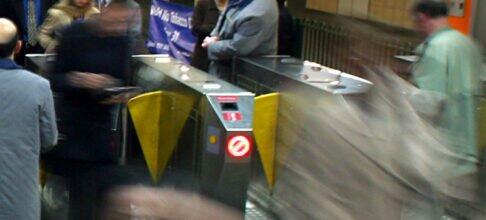Worried about the dwindling oil production and the need to drive investment in the nation’s oil and gas sector, the Minister of State for Petroleum Resources (Oil), Heineken Lokpobiri has expressed the federal government’s readiness to collaborate with the Petroleum Technology Association of Nigeria (PETAN) in a bid to increase Nigeria’s oil production and revenue.
The minister gave the assurance when he visited members of the Petroleum Technology Association of Nigeria (PETAN) in Lagos.
Lokpobiri affirmed that the federal government is putting up measures to restore oil production, saying there is a need for the ministry and PETAN to work together to maximize all available opportunities that can help increase production in the country.
He noted that the quickest way for the country to overcome the current economic hardship is through the exploration and production of oil and gas.
He added, therefore, that the government is actively engaged in policy evolution, aimed at maximising the utilisation of all available oil and gas wells in the country.
“Lokpobiri stated: ’No country leaves their well idle, in Nigeria so many seismic activities have been done and we have a lot of oil wells that are yet to be utilized.
“Imagine, one of the OML’s has about 150 idle wells. There is no way we can increase production if these wells continue to be idle. The wells are already drilled and capped since 1970s. These are low-hanging fruits.
“Part of our policy direction is to see how we can farm out some of these idle wells for proper utilization. Now that the world is transiting to cleaner energy, the country must use the available time to maximise the utilization of the wells to increase production.
‘’Except we increase our production, our midstream and downstream will continue to suffer. So, I believe that I and PETAN need to work together so that we can maximise the opportunities the industry can avail us, for the economic prosperity and development of the nation.’’
The minister said he had made a strong commitment to work with PETAN and other Nigerians in the oil and gas sector, who have shown proven capacity to ensure the growth of the sector.
He expressed conviction that the solution to Nigeria’s energy poverty lies with every stakeholder, stressing that nobody or nation will come to salvage the nation’s oil and gas industry except Nigerians.
The minister said if Nigerians are allowed to play at the desirable level, there will be a lot of improvement in the petroleum sector.
He also pointed out that the essence of the Local Content law was to enable Nigerians to build strong capacity to be able to play side by side with their international counterparts.
Lokpobiri noted that Nigeria has not depleted her oil reserve, saying rather, with the increased reserve that was announced recently by the Nigerian Upstream Petroleum Regulatory Commission (NUPRC), it was expedient that the Nigerian government will do all it can to drill more wells.
The NUPRC had announced a rise in Nigeria’s hydrocarbon reserves as of January 1, 2024, with the country’s stock of crude oil jumping by 1.087 billion barrels and its gas reserves surging by as much as 2.573 trillion Cubic Feet (TCF).
In line with NUPRC’s statutory declaration, Nigeria now boasts of 37.5 billion crude oil reserves, while its total gas resources as of the beginning of this year, now stands at 209.26 TCF.
The minister said the President Bola Tinubu-led administration is doing all it could to take the nation to a better economic standing in the comity of the nations.
He affirmed that one of the cardinal points of the president was to address the nation’s energy poverty, noting that as the world is transiting, the nation must address its challenges to enable the country to transit as well.
Earlier in his remarks, the Chairman of PETAN, Engr. Wole Ogunsanya, reiterated the association’s commitment to supporting the Minister and all the efforts of President Tinubu toward increasing oil production and development of the energy sector.
He also called on the government to see how it could grant incentives to stakeholders in a bid to ensure better output and economic benefit for the industry and the nation at large.
Ogunsanya said: ‘’Honorable Minister, we thank you and assure you that we will continue to align ourself with the vision of the president. And as we have continually said, the nation must show its indigenous capacity to explore and drill oil 100 percent.”
He affirmed his PETAN members’ ready to help in the development of the Nigerian oil and gas sector.
However, “At the instance of the Chairman, the Publicity Secretary, Engr. Dr Innocent Akuvue gave the vote of thanks and appreciated the Hon Minister for making out time to visit the association. He assured the minister of the association’s commitment to support the ministry always .
‘’Honourable Minister ,we thank you for this wonderful visit and we want to assure you that PETAN is solidly behind you and Mr. President. By God’s grace we will not fail to support the vision and aspirations of the president in boosting the economic situation of the country.’ He stated
He noted that PETAN is an association of Nigerian indigenous technical oilfield service companies in the upstream and downstream sectors of the oil and gas industry. The association was formed to bring together Nigerian oil and gas entrepreneurs to create a forum for the exchange of ideas with the major operators and policymakers.
He said that one of the association’s core objectives is to plan on how to acquire, develop, advance and promote petroleum technology for the benefit of Nigerians.















